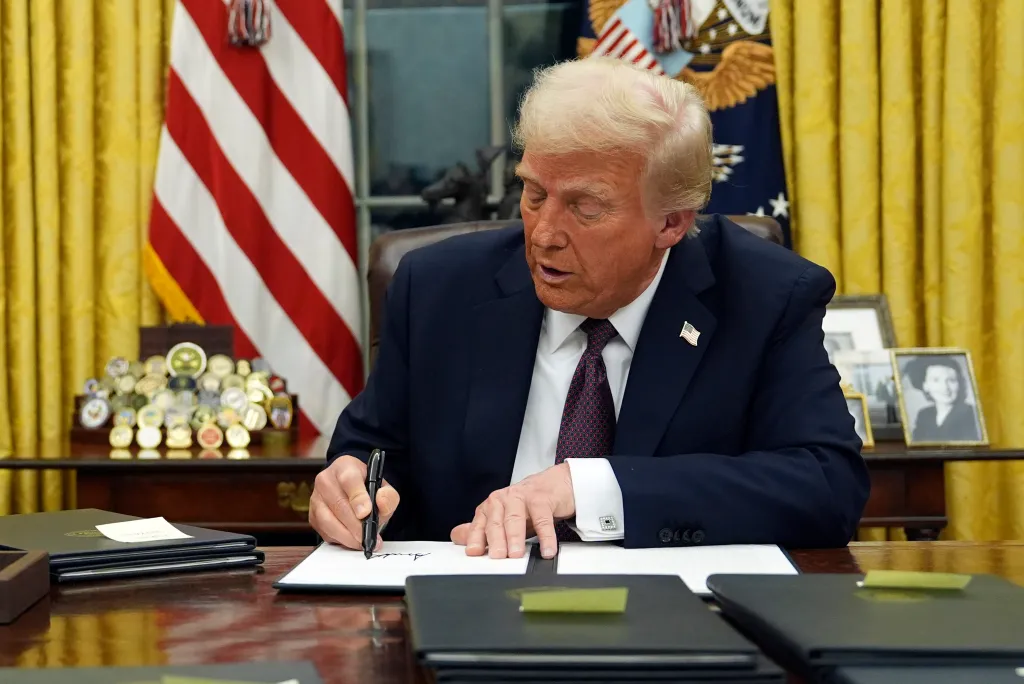Donald Trump yesterday took an oath to “preserve, protect and defend the Constitution of the United States” and then promptly broke that oath by seeking to revoke the first sentence of the 14th Amendment: “All persons born or naturalized in the United States, and subject to the jurisdiction thereof, are citizens of the United States and of the State wherein they reside.”
Remember, Trump has not been elected king or strongman, and indeed a balance of powers was the foundational idea on which the U.S. constitutional system was designed. Trump and his burgeoning administration can talk all they’d like about a popular mandate about carrying the will of the people, responding decisively to crisis and so on, but it is not just an option but a fundamental responsibility for the Congress and the federal courts to push back as necessary.
In 1898, the U.S. Supreme Court ruled in Wong Kim Ark vs. United States that all people born on American territory, barring the extremely narrow exception of the parents being foreign diplomats, are citizens by birth under the 14th Amendment.
Trump knows very well that an executive order cannot overturn Supreme Court precedent, nor can it unilaterally reinterpret or do away with parts of the Constitution (we’d imagine Joe Biden would have simply undone the overturn of Roe’s abortion protections with the stroke of a pen otherwise).
Just because the president orders something, and tries to use the levers of the federal government to implement it, doesn’t mean he has the authority. The picture has gotten muddier since Trump’s Supreme Court majority gave him unqualified immunity from criminal prosecution for so-called official acts after he leaves office, but he’s still just one person.
The rest of the administrative state, lawmakers of both parties, judges who value their independence of their lifetime appointments, all have a role to play in maintaining their power and constraining the executive, not just in the standard political disagreement ways but in terms of defending the laws, Constitution and system of government of the United States.
Trump has other executive orders on immigration, as well as on different topics — close to 100 we are told — and not all of them will so blatantly be counter to the Constitution and some will just be standard-issue presidential decision-making which could well include good ideas, although axing protections for transgender students is not one of them.
The presidency is a powerful perch that can be used for good or ill. Going after the protections of the 14th Amendment, which granted citizenship to Black American liberated from slavery by the Union Army in the Civil War, is a terrible way to bring reform to immigration, which surely needed reforming. Trump will not succeed, but maybe he only wants to be seen as trying. That’s no way for new reminted president to behave.
We hope that the other powers that be take their counterbalancing mandate seriously. The maintenance of a democratic system of government, not to mention the basic stability of the economy, depend on it.
